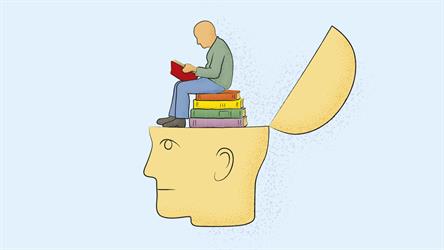Your Say: Education and Your Children

Lee McKing,
SPS
Reduce spoon-feeding! We cannot inculcate a love for learning when “learning” means getting the answer from the teachers or parents immediately. Instead, parents and educators should be guiding. What truly matters, then, is the process, not the goal. Here’s an example: What and what makes 2? Most people have been structured to say 1+1=2. But is that it? It’s not! 2+0 is also 2. And so is 2×1, 4-2, 21, 20-18, 98/49, and so on! If we can produce the same result, with no answers being said as wrong, we would be inculcating a love for learning, freedom of expression and thinking out of the box.
Congratulations, Lee! Thanks for sharing your suggestions with us. We’re sending you a $100 board games voucher from Paradigm Inf initum! What better way to cultivate a love for learning than to make it fun with games?
Sharon Teng,
NLB
Education should be looked at holistically: 40% should be taught at school, while the balance 60% should be informal education, comprising home learning and social learning through the media, friends and religious institutions.
Formal education teaches literacy skills and instils in the child academic knowledge, discipline, respect for authority and accountability for one’s academic progress.
Informal education helps the child to develop emotionally and spiritually, and sets the foundation for his/her moral and ethical attitudes. It is largely through this route of learning that a child gains his/her vital life skills.
Jack Huang,
MND
The education system should offer diverse definitions of success. Specifically, education should nurture children’s innate talents and strengths, rather than penalise them for their natural shortcomings. Finally, children should be taught that pursuing one’s passions and the translation of knowledge into practical application need not be mutually exclusive.
Thinagaran S K,
SPF
There was a time when neighbour shared delicacies with neighbour during festive occasions. Now, we live in a time when we don’t even know our next-door neighbour. Are the values of our forefathers being passed on to the young ones? To borrow a quote from Martin Luther King Jr.:“Intelligence plus character – that is the goal of true education.”
Richard Lee,
SPS
I think an extensive education in Humanities, such as basic Philosophy, Sociology, Psychology, Anthropology and morals-inculcating literature such as Divinity and Confucianism, would lead to a better understanding of oneself and others. This can also come alongside the appreciation, respect and awareness of social mores, cultural values, differences and tradition. Hopefully, our children would grow to realise that a lucrative career and material possessions are not everything
Alma Rahima,
IE Singapore (Jakarta)
Having more curriculums related to entrepreneurship (applied together with other subjects such as Math, social science, etc.) will be so much fun and easier to digest for children as they won’t have to sit in class all the time. Business events, bazaars and simulation of doing business for kids are examples of giving this real-life exposure and how they can apply the theories/subjects they have learnt in class.
From the editor:
We’re overwhelmed by the many passionate responses to this issue’s Your Say. Thank you for your enthusiasm!

Tell us at
The best entry will win an attractive prize worth up to $100! All other published entries will win book vouchers worth $30 each. Please include your name, agency email address, agency and contact number.
All entries should reach us by August 7, 2013.
- POSTED ON
Jul 16, 2013
-
Your Say
Your Say: How Will You Live 2013?









